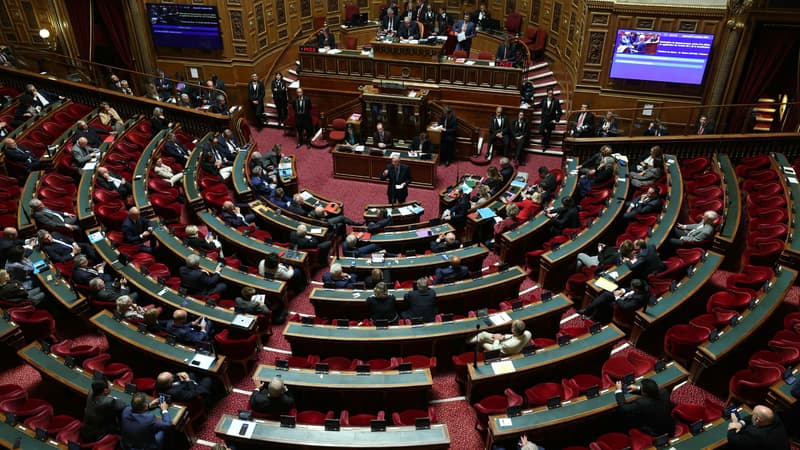The Budget reaches the Senate. The Upper House, which mostly supports the Government, will examine from Monday to Saturday the part of the finance bill dedicated to revenue and will then address the “expenditure” section, before a solemn vote on the entire bill. of finance on December 12.
But between spending cuts, job cuts in National Education, exhausted communities and irritating taxes, the text that foresees 60 billion euros in savings includes its share of tense measures for senators. General description.
• High income and large companies
To restore public finances, Michel Barnier’s government proposes two emblematic measures in terms of “income”: a taxation of the richest families of a minimum of 20% for three years (2 billion euros are expected) and a “contribution exceptional” to profits. of large companies (8 billion). Although tax increases are far from being in the DNA of the right, which has a majority in the Senate along with its centrist allies, Senate experts recognized that these exceptional and temporary measures were necessary, paving the way for their adoption.
The Senate majority even plans to combine them with “anti-fraud” and “anti-abuse” measures, including a mechanism that is currently being built to combat “CumCum”, a tax fraud aimed at avoiding the tax on dividends. Regarding aid to companies, the Upper House also proposes “reorienting” the research tax credit (CIR) to save several hundred million euros.
The government also proposes an exceptional contribution to maritime transport companies, of 500 million euros in 2025.
• Energy: towards an electricity-gas rebalance?
Like the deputies during the debates, the senators will probably oppose the planned increase in the tax on electricity prices, to “protect purchasing power.” The government intended to leave itself free to increase this tax to a level higher than before the crisis, while guaranteeing a 9% reduction in the regulated rate.
This proposal, which was expected to raise €3.4 billion, could be partially offset in the Senate by an increase in the gas tax, with an expected revenue of €1 billion. The Government is also proposing an increase in the penalty for petrol and diesel vehicles, as well as an increase in VAT on gas boilers. These two points promise lively debates in the chamber.
• Protected communities
It is not surprising that the “Chamber of Territories” directly opposes the five billion euros demanded by the government for the functioning of local authorities. In committee, he eliminated the reduction of the VAT Compensation Fund (FCTVA), a system to support communities in their investment expenses. The measure should provide 800 million and Michel Barnier has so far only partially committed to the measure, stating that he is willing to eliminate only its retroactivity.
But what angers local elected officials in the government project is above all the “precautionary” fund of 3 billion euros, which consists of a tax on the income of the 450 largest communities. The senatorial right proposes to fundamentally remodel it by expanding its scope but limiting its impact, particularly for the most fragile communities such as the departments.
In total, the effort required by the communities would go from five billion to two billion, as demanded by the president of the Senate, Gérard Larcher. Very insufficient for the left, which wants to go much further by also eliminating the freeze on VAT revenues.
• Airplane shots
The senatorial right wants to especially attack state spending, an aspect that the National Assembly was unable to examine in public session. Therefore, many budget “missions” could see their allocations reduced by the Senate, as is the case with state operators, an indicator of the right.
The High Assembly has already voted in committee on the abolition of universal national service (UNS), the adjustment of the budget for state medical aid (AME) and learning aid, the reorientation of the Cultural Pass towards student scholarships or even a reduction of the billion euros in unused credits for teacher training.
Regarding the elimination of 4,000 teaching positions, one of the most delicate decisions of this finance bill, the debates also promise to be nourished. Also on the table will be an increase from one to three days of waiting for sick leave in the public service.
Source: BFM TV


